|
As founder and president of a 501c3 non-profit reentry organization that helps emancipated individuals to realize a second chance and provides the necessary programs and services they need as they reenter society, as well as assists to clear the criminal records, many times I am asked what made me want to get involved with such an endeavor? The simple answer is, back in 2003, I was involved in a domestic altercation that turned physical and was hit with a misdemeanor for domestic violence. Although it was my first offense, I was given three years’ probation and the court ordered me to take an anger management course. In retrospect, had I known what I know today about how the system can work or first time offenders, I would have petitioned the court to enter into the anger management program, and to be placed in a pretrial diversion program for first time offenders, instead of pleading “nolo contendere”, or no contest.
Nonetheless, I had been convicted, so I moved swiftly to begin to do the research and self-education to learn the process of getting an expungement in the California Superior Court system, and get my record cleared. I was not willing to allow this mistake to derail my career, and destroy everything that I had worked to achieve up until that point. Needless to say, as soon as my probation was ended, I immediately petitioned the court for an expungement, or in today’s terms, a dismissal. I had completed my anger management course, paid my restitution in full, and by the grace of God and the mercy of the court, the petition for dismissal was granted by the judge. I have continued to lead a peaceful and happy life free from the burden of having a conviction in my criminal history, as the conviction has now been set aside. Proof that this mishap in life can happen to anyone, and even though it seemed my life was destroyed, the entire experience of being charged with a misdemeanor landed me where I am today, a staunch advocate for criminal justice reform. Through this experience, God gave me deeper insight and made me understand that there are many other people like me who had never been entangled in the criminal justice system, and, some have been like a revolving door, and need assistance getting their lives back on track. He is the complete inspiration for Free Indeed Reentry Project, Inc. These days, I am traveling around the state of California, and the country, teaching, dispelling myths, and educating our communities about the health and economic benefits of cannabis. Unfortunately, even after the charge of misdemeanor domestic violence has been expunged, there are still hurdles that one must clear while working in the criminal justice system fighting for change and reform, and in the prison system to help to rehabilitate those who are looking to the future and their opportunity to come home and reunite with their families and their community. Domestic violence offenses can often prevent us from entering some prison facilities to work, therefore hindering us from providing much needed reentry services on the inside. This issue seriously needs to be addressed by our legislature as ALL domestic offenders should not be prevented from being allowed to work within the prison system, and without, to help others in a similar situation to overcome barriers from past convictions and stints in prison. Nita Watson, Founder, President & CEO Black Gold Urban Grow Consulting & ExpoTM Free Indeed Reentry Project, Inc. (501c3) 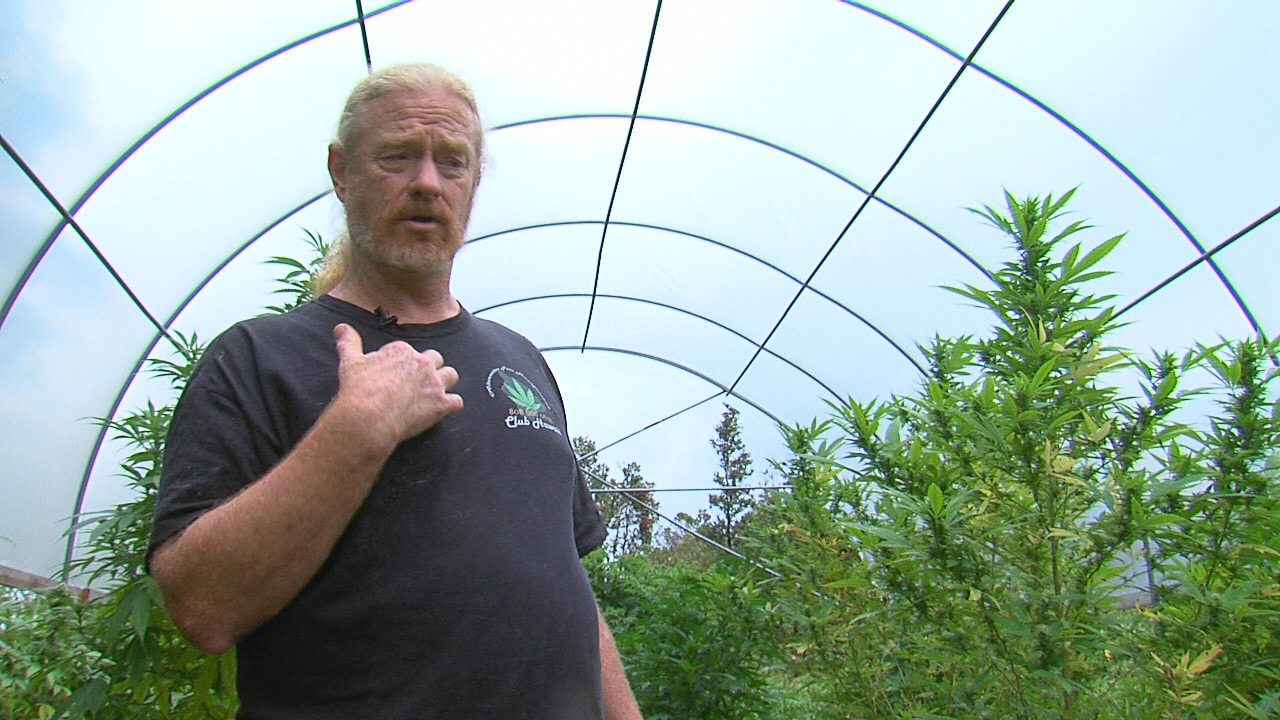 (October 18, 2019) A 62-year-old Mountain View man authorities say ran an unlicensed medical marijuana dispensary told potential jurors Wednesday that he is being prosecuted for providing sick people with an “uninterrupted supply” of medical-grade cannabis for “compassionate use” — something he said the state failed to do when it passed a medical cannabis law in 2000. Mike Ruggles, who is representing himself, made the pronouncement during the second day of jury selection in his trial before Hilo Circuit Judge Greg Nakamura. The longtime marijuana activist is charged with first-degree promotion of a detrimental drug and possession of drug paraphernalia, both Class C felonies punishable by up to five years imprisonment upon conviction. Ruggles originally faced several more serious offenses, including first-degree commercial promotion of marijuana and first-degree promotion of a harmful drug, Class A felonies punishable by up to 20 years imprisonment upon conviction. The state, however, reduced charges prior to trial, according to Deputy Prosecutor Rick Damerville. According to police, a search warrant executed Sept. 10, 2015, on Ruggles’ Pikake Street property in Fern Acres netted 134 marijuana plants, 49.3 pounds of dried processed marijuana, 1.2 pounds and 357 capsules of marijuana concentrate, 5.5 pounds of marijuana edibles, $1,846 in cash for forfeiture, a loaded pistol, a loaded shotgun and a 15-round magazine for a pistol. Police say they obtained the search warrant after an undercover officer bought 48.2 grams of processed marijuana and a vaping device with a vial of marijuana concentrate from Ruggles five days earlier. The undercover officer had a letter from a physician stating he had started the process to obtain a medical marijuana card, police said. The application was made using the officer’s undercover identity, not his real name. “Mr. Ruggles is charged with the sale of marijuana to someone who is not legally eligible to receive marijuana,” Damerville told prospective jurors. “And if the evidence proves that beyond a reasonable doubt, could you find Mr. Ruggles guilty of that offense, even though you may not feel it’s all that important of an offense to bring before a jury? Could you do that?” A man in the jury box replied, “No, I cannot, sir. Tobacco’s been proven to be harmful. Marijuana, the verdict’s still out on that.” The man said he doesn’t know Ruggles but lives on the same street and added, “He’s not the danger to my well-being and safety of my community. My neighbors know that.” Damerville asked if he thought authorities had the right to enforce laws regarding the health of the community, and the man — who said he has a medical marijuana card — replied, “I don’t think it’s violating the health of the community.” The prosecutor then brought up recent warnings about vaping, summing up a recent Honolulu Star-Advertiser article that reported “something like five out of the eight dispensaries, their marijuana concentrate cartridges were not up to the Department of Health standards.” At the time of his arrest, Ruggles was openly operating what he called the Alternative Pain Management Pu‘uhonua Collective, which he advertised on YouTube and maintained is a legal way for medical cannabis patients to obtain their medicine. When it was his turn Wednesday, Ruggles used an analogy involving carrots to make the point that prior to the Legislature’s authorization of dispensaries, the state didn’t specify how medical marijuana patients could legally obtain marijuana. “Now, I think a reasonable person, like you folks, would believe — because I always believed this and so did all our members — was that if the state says you’re allowed to do something but stands silent on it, well, you can do it any way you want. Doesn’t that sound reasonable?” At that point, Damerville objected and a bench conference ensued. Ruggles also disputed that his vape products were unsafe, saying his operation had a gas chromatography machine to test products. “In 2015, before dispensaries, it was impossible for sick people to get medicine,” he said. “… I met with (County Prosecutor) Mitch Roth twice, because I was pointing out, hey, I got 150 people here dying. Over 20 of our members were hospice members. These people, it was a pleasure to serve them, and it was a pleasure to help them pass on. “Right now, we got an opioid epidemic in America,” he continued. “… In 2016, you got 115 people a day dying from opioids. There’s never been a documented case of anybody dying of … cannabis. In 2012, I lost my wife to opioids. And my daughters had to watch her die. And I can tell you this, as someone who’s done hospice for a few years, a death on opioids is not a decent death. It’s not a death with dignity. You’re on opioids, you’re sick, your stomach’s upset, you can’t eat, you’re constipated — and you’re not happy. You can’t spend time with your friends and loved ones in a quality condition. Whereas, if you use cannabis, you can do all those things. You can feel better. You can eat. … Nobody has ever overdosed on marijuana.” Jury summons were sent to 250 people, 10 more than for last year’s trial of Sean Rutledge, who was convicted of murdering his mother, Nadean Rutledge. There also is a list of 160 potential witnesses, mostly for the defense. The list includes Jennifer Ruggles, the defendant’s daughter and a former County Council member; Roth; and numerous political figures and law enforcement officers. “You saw the witness list.” Damerville told jurors. “Did any of you have a reaction of, ‘Oh my God, this witness list. We’re gonna be here forever.’ Did anybody have that reaction?” An audible murmur rose from the courtroom. “OK, the state intends to call seven witnesses in this case,” the prosecutor said. “And the state intends to move this case along as quickly as we can. … I am the oldest prosecutor in the state of Hawaii. And based on my experience, this case is not gonna take three weeks. It’s not gonna take two weeks.” The state is expected to call witnesses and present evidence when the trial resumes at 9:30 a.m. Monday. Email John Burnett at [email protected]. #Walk4Change #EndProhibition #NoJailforPot #Walk4Change #EndProhibition #NoJailforPot #CivilianPlatoon #GIMaryJane
1. Prohibition hasn’t worked — marijuana use is mainstream and widespread. Relatively few Americans had heard of marijuana when the federal government first effectively prohibited it in 1937. Today, government datashows more than 118 million Americans admit to having tried it (24 million in the last month), and every year, the Monitoring the Future survey finds that four out of five high school seniors say marijuana is easy to obtain. 2. Prohibition wastes public resources 3. Arresting marijuana offenders prevents police from focusing on real crime. In 2016 alone, the FBI reported more than 650,000 marijuana arrests and citations — more than for all violent crimes combined. Meanwhile, FBI data showed that less than 46% of violent crimes and only 18.3% of property crimes were cleared nationwide. Data published in Police Quarterly showed a higher percentage of some crimes were solved after legalization in both Colorado and Washington. 4. Prohibition sends an incredible number of Americans through the criminal justice system, ruiningcountless lives. According to the FBI, there have been more than 13 million marijuana arrests in the U.S. since 1995. Eighty-nine percent were for possession. While marijuana consumers who were not convicted have gone on to be president or Supreme Court justice, a criminal conviction can stand in the way of securing a job, getting housing, or receiving a professional license, student loan, food assistance, driver’s license, or firearms permit. 5. Marijuana laws are disproportionately enforced. According to the ACLU, blacks are more than three times as likely to be arrested for marijuana possession than whites, despite similar rates of use. 6. Ending marijuana prohibition does not increase rates of teen recreational marijuana use. According to the most comprehensive government surveys in each state, no state that legalized marijuana for adults has seen an overall increase in teens’ rates of marijuana use outside of the confidence interval. Most of the data indicates slight decreases within the confidence intervals. 7. Marijuana prohibition breeds violence. As was the case during alcohol prohibition, driving this lucrative market underground results in violence. Both buyers and sellers are vulnerable to assault when normal commerce and purchase disputes cannot be solved lawfully, in courts. 10. Marijuana is safer than alcohol. The U.S. Centers for Disease Control and Prevention reports more than 30,000 alcohol-induced deaths per year, including more than 2,000 from acute overdose. It reports zero marijuana-induced deaths each year and there has never been a verified marijuana overdose death in history 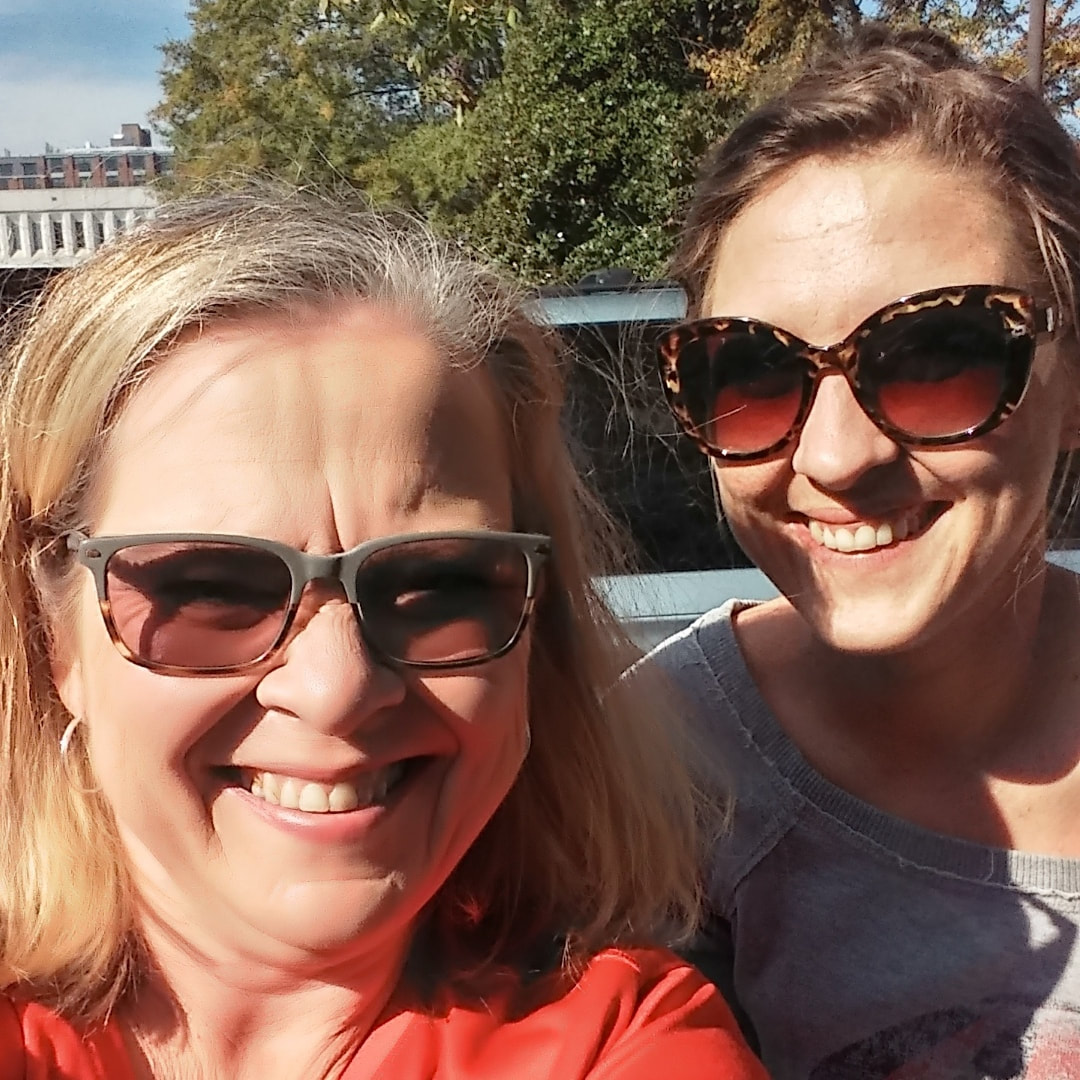 They are few people I love and respect in the world as much as I do Sharon Ravert. When I first met her I was tracking down Cannabis activists in Georgia some years ago and we spoke and the rest is history. For all her good works, her friendship and passion for life and people, what I try to never forget is how the absurd policies of government awakened this lioness. For that is what she is. Fierce, formidable, tough and loyal. I do not need to tell you more about her, just watch and listen and you will see what I have known for years. This is why we fight. This is why prohibtion must end. Oh yeah, and if you run into Sharon anywhere say hello, listen and learn. #Walk4Change #EndProhibition #NoJailforPot I began my journey of learning the power of cannabis 16 years ago at the age of 31. I had used cannabis recreationally off and on most of my life but had never looked into the health benefits. By the time I was 31 I had worked many physically taxing jobs to support my family and had injured my back a handful of times but always bounced back quickly. This came to a quick end when I felt a pain go down my leg at work one morning. I didn’t report it and continued working for almost a month more. At this point I was to the point of having trouble walking etc. and sought medical help. This was the beginning of six spine surgeries and monthly refills of opioids. I took over the course of 10 years methadone, morphine, dilaudid, oxycontin, and oxycodone. Even after copious amounts of these drugs I was always in pain. My mood was affected, my energy and worst of all was the fear of running out.
I began reflecting on what was actually helping and what was hurting. I began looking into using cannabis as medicine. I realized that when I smoked or ingested cannabis I got more pain relief then when I took opioids. This was my aha moment. I decided then and there that I was taking my life back. I started weaning myself off of opioids. One of the proudest moments in my life is the day I called the pain clinic I had been a regular at for 7 years and told I no longer needed their services. I was choosing to treat with cannabis only. The next hurdle was the depression and flat mood I was left with after 10 years of narcotics. Once again cannabis saved me. It helped me to regulate the depression until my bodies natural chemicals were able to regulate. This was not easy- it took about two years but it was worth it. I have since been able to stop 2 other medications by replacing them with cannabis. I am a daily user of cannabis in all of its forms. I smoke it, eat it and use it topically- both THC and CBD. I still take some medications for type 1 diabetes and will have to for the rest of my life. My approach is a common sense approach. No, cannabis does not cure everything. Cannabis is not going to fix my pancreas or my damaged nerves but it can help. Cannabis does stimulate my appetite so I can eat- my lack of appetite is from neuropathy of my stomach from diabetes. Cannabis does decrease my pain and allow me to focus on other parts of my life. Cannabis allows me to be a contributing member of society by allowing me to be clear of mind and healthy. So, is cannabis a cure all for every disease and ailment? No. Is cannabis suitable for some diseases and at the very least an appropriate supplement? Yes! I am a living testament to that. I am 8 years clean of opioids and I am on 4 less pharmaceuticals and the healthiest and happiest I have ever been. Common sense, my body my choice of medicine not the government. Becca Nichols age 47. Mother of 5, grandmother of 3. Full time activist. Treasurer and executive board member of THSI. https://thsintl.org/2019/10/01/a-life-of-pain-and-opioids/?fbclid=IwAR1glehGvXQcWoXjctXJjrGSDvu6THHawdNetF3fSHlCG_924CVCpOLj06M |
HISTORY
April 2024
Categories |
© Walk 4 Change. All rights reserved.

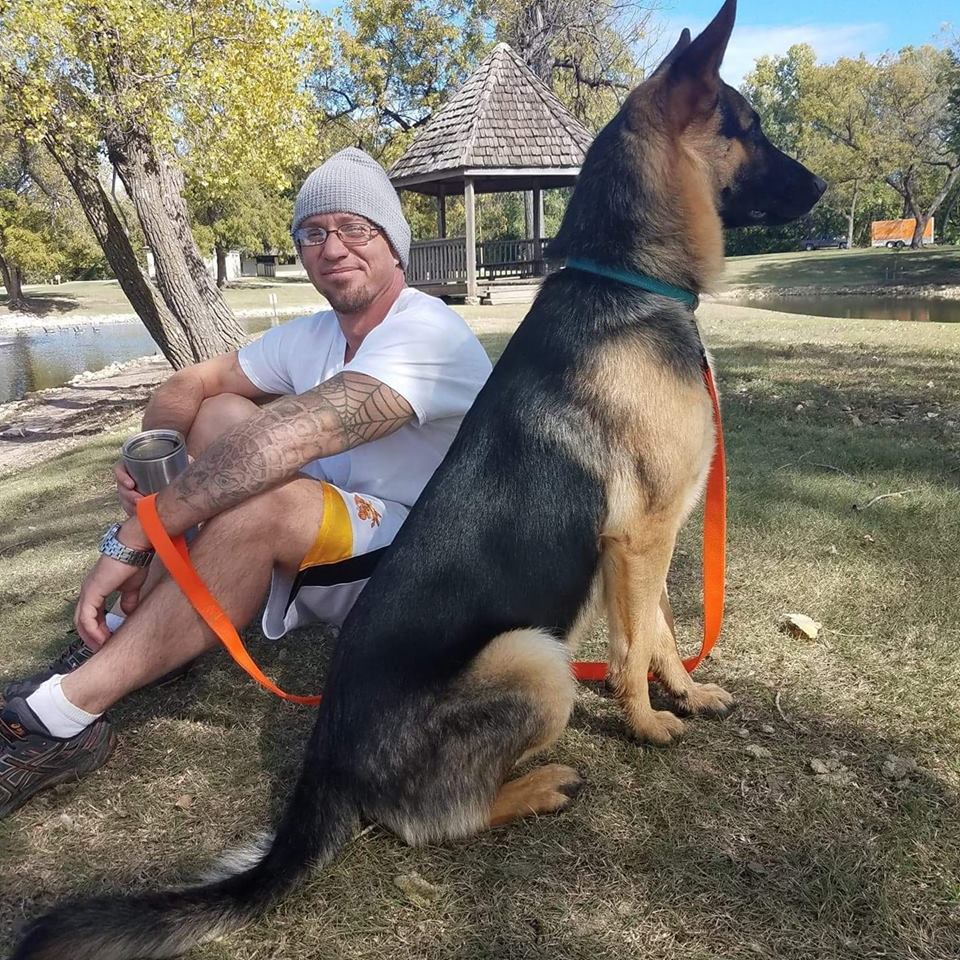

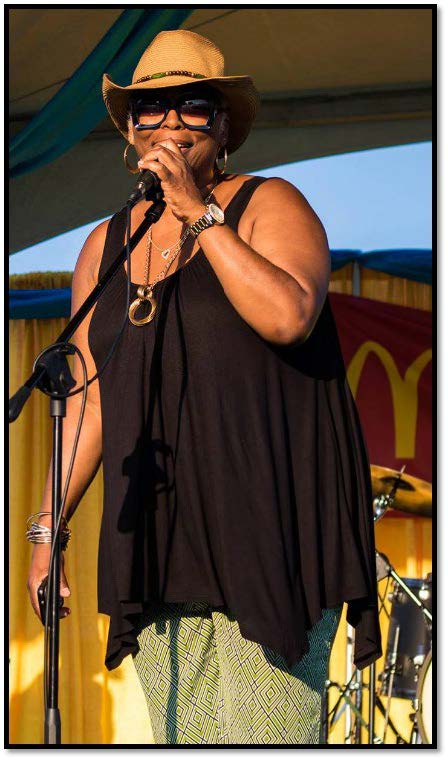

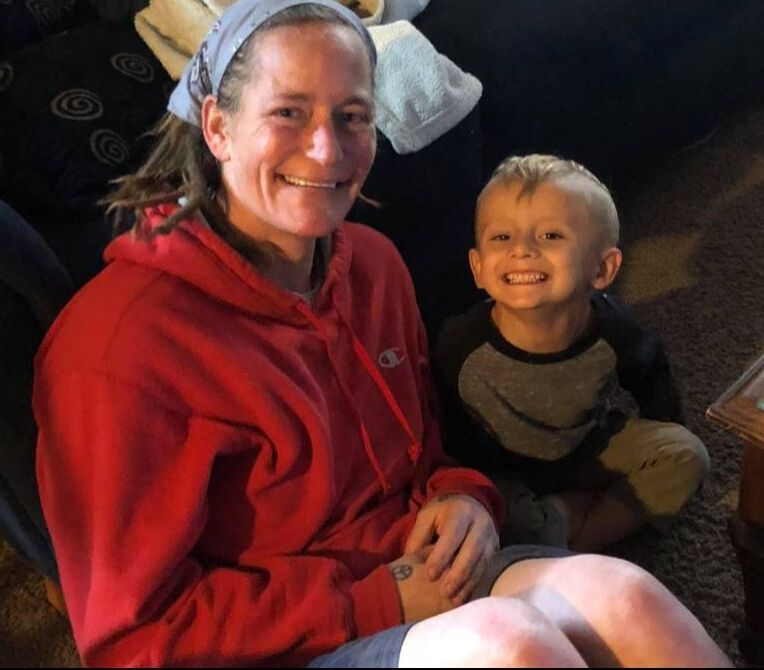
 RSS Feed
RSS Feed